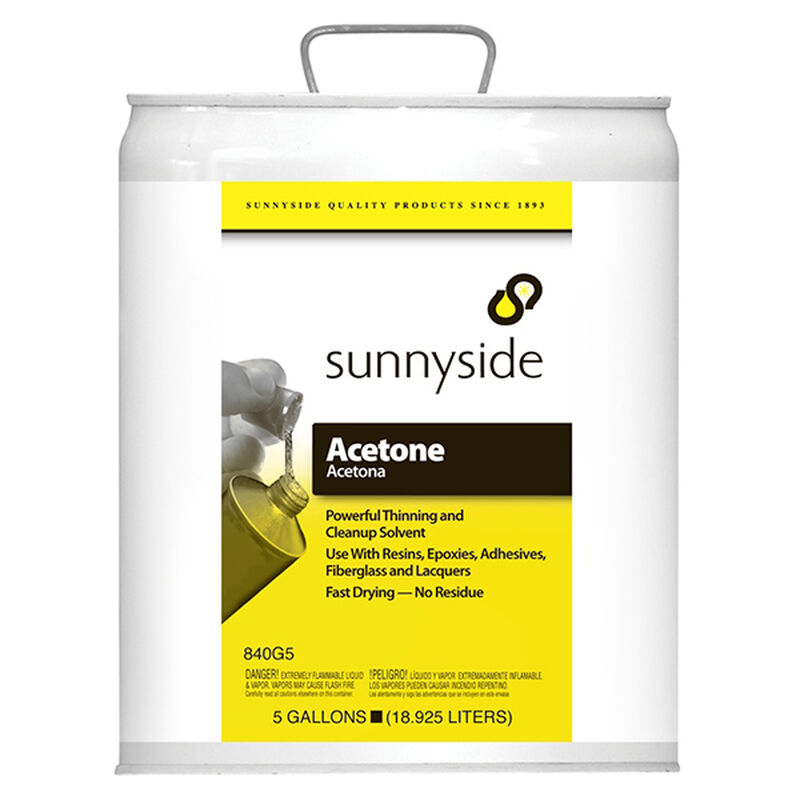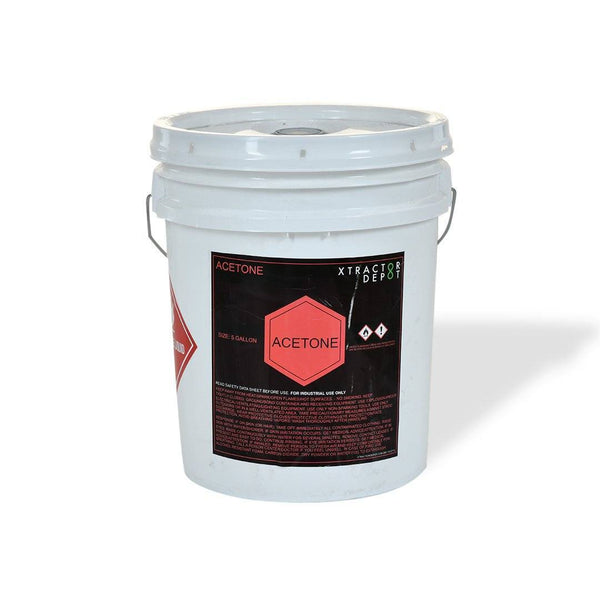Acetone 99% - 1 Gallon
By A Mystery Man Writer
Description
Acetone is often the primary (or only) component in nail polish remover. Acetonitrile, another organic solvent, is sometimes used as well. Acetone is also used as a superglue remover. It can be used for thinning and cleaning fiberglass resins and epoxies. It is a strong solvent for most plastics and synthetic fibres.
Product SDS Sheet The chemical compound acetone (also known as propanone, dimethyl ketone, 2-propanone, propan-2-one and β-ketopropane) is the simplest representative of the ketones. Acetone is a colorless, mobile, flammable liquid with melting point of −95.4 °C and boiling point of 56.53 °C. It has a relative density of 0.819 (at 0 °C). It is readily soluble in water, ethanol, ether, etc., and itself serves as an important solvent. The most familiar household use of acetone is as the active ingredient in nail polish remover. Acetone is also used to make plastic, fibers, drugs, and other chemicals. Before the invention of the cumene process acetone was produced by the dry distillation of acetates, for example calcium acetate. Uses Acetone is the strongest consumer-grade solvent available. It is ideal for thinning fiberglass resin, cleaning fiberglass tools and dissolving two-part epoxies and superglue before hardening. A heavy-duty degreaser, it is great for prepping metal before painting. Also thins polyester resins, vinyl and adhesives. Easily removes residues from glass and porcelain. An important industrial use for acetone involves its reaction with phenol for the manufacture of bisphenol A. Bisphenol A is an important component of many polymers such as polycarbonates, polyurethanes and epoxy resins. Acetone is also used extensively for the safe transporting and storing of acetylene. Vessels containing a porous material are first filled with acetone followed by acetylene, which dissolves into the acetone. One liter of acetone can dissolve around 250 liters of acetylene. Acetone is often the primary (or only) component in nail polish remover. Acetonitrile, another organic solvent, is sometimes used as well. Acetone is also used as a superglue remover. It can be used for thinning and cleaning fiberglass resins and epoxies. It is a strong solvent for most plastics and synthetic fibres. Additionally, acetone is extremely effective when used as a cleaning agent when dealing with permanent markers. Also acetone can be used as an artistic agent; when rubbed on the back of any laser print or laser photocopy it produces a rough ready effect. Acetone has been used in the manufacture of cordite. During World War I a new process of producing acetone through bacterial fermentation was developed by Chaim Weizmann, the first president of Israel, in order to help the British war effort. Acetone can also dissolve many plastics, including those used in consumer-targeted Nalgene bottles. Acetone is also used as a drying agent, due to the readiness with which it mixes with water, and its volatility. In the laboratory, acetone is used as a polar aprotic solvent in a variety of organic reactions, such as SN2 reactions. Another industrial application is to use it as a general purpose cleaner in paint and ink manufacturing operations. Use as an automotive fuel additive Some automotive enthusiasts add acetone at around 1 part in 500 to their fuel, following claims of dramatic improvement in fuel economy and engine life. This practice is controversial as there are counterclaims that acetone has no measurable effect or may in fact reduce engine life by adversely affecting fuel system parts. Debates on this subject and claims of Big Oil cover-up intensified when the practice was addressed on the popular American TV show Mythbusters in 2006, and shown to have negative effect in the televised fuel economy test. Health effects Acetone is an irritant and inhalation may lead to hepatotoxic effects (causing liver damage). The fumes should be avoided. In no circumstance should it be consumed directly or indirectly. Always use goggles when handling acetone; it can cause permanent eye damage (corneal clouding). Small amounts of acetone are metabolically produced in the body, mainly from fat. In humans, fasting significantly increases its endogenous production (see ketosis). Acetone can be elevated in diabetes. Contamination of water, food (e.g. milk), or the air (acetone is volatile) can lead to chronic exposure to acetone. A number of acute poisoning cases have been described. Relatively speaking, acetone is not a very toxic compound; it can, however, damage the mucosa of the mouth and can irritate and damage skin. Accidental intake of large amounts of acetone may lead to unconsciousness and death. The effects of long-term exposure to acetone are known mostly from animal studies. Kidney, liver, and nerve damage, increased birth defects, and lowered reproduction ability of males (only) occurred in animals exposed long-term. It is not known if these same effects would be exhibited in humans. Pregnant women should avoid contact with acetone and acetone fumes in order to avoid the possibility of birth defects, including increased brain damage. Interestingly, acetone has been shown to have anticonvulsant effects in animal models of epilepsy, in the absence of toxicity, when administered in millimolar concentrations. It has been hypothesized that the high fat low carbohydrate ketogenic diet used clinically to control drug-resistant epilepsy in children works by elevating acetone in the brain. Safety Due to incompatibilities, it is recommended to keep acetone away from bromine, chlorine, nitric acid, sulfuric acid and Trichloromethane.
Product SDS Sheet The chemical compound acetone (also known as propanone, dimethyl ketone, 2-propanone, propan-2-one and β-ketopropane) is the simplest representative of the ketones. Acetone is a colorless, mobile, flammable liquid with melting point of −95.4 °C and boiling point of 56.53 °C. It has a relative density of 0.819 (at 0 °C). It is readily soluble in water, ethanol, ether, etc., and itself serves as an important solvent. The most familiar household use of acetone is as the active ingredient in nail polish remover. Acetone is also used to make plastic, fibers, drugs, and other chemicals. Before the invention of the cumene process acetone was produced by the dry distillation of acetates, for example calcium acetate. Uses Acetone is the strongest consumer-grade solvent available. It is ideal for thinning fiberglass resin, cleaning fiberglass tools and dissolving two-part epoxies and superglue before hardening. A heavy-duty degreaser, it is great for prepping metal before painting. Also thins polyester resins, vinyl and adhesives. Easily removes residues from glass and porcelain. An important industrial use for acetone involves its reaction with phenol for the manufacture of bisphenol A. Bisphenol A is an important component of many polymers such as polycarbonates, polyurethanes and epoxy resins. Acetone is also used extensively for the safe transporting and storing of acetylene. Vessels containing a porous material are first filled with acetone followed by acetylene, which dissolves into the acetone. One liter of acetone can dissolve around 250 liters of acetylene. Acetone is often the primary (or only) component in nail polish remover. Acetonitrile, another organic solvent, is sometimes used as well. Acetone is also used as a superglue remover. It can be used for thinning and cleaning fiberglass resins and epoxies. It is a strong solvent for most plastics and synthetic fibres. Additionally, acetone is extremely effective when used as a cleaning agent when dealing with permanent markers. Also acetone can be used as an artistic agent; when rubbed on the back of any laser print or laser photocopy it produces a rough ready effect. Acetone has been used in the manufacture of cordite. During World War I a new process of producing acetone through bacterial fermentation was developed by Chaim Weizmann, the first president of Israel, in order to help the British war effort. Acetone can also dissolve many plastics, including those used in consumer-targeted Nalgene bottles. Acetone is also used as a drying agent, due to the readiness with which it mixes with water, and its volatility. In the laboratory, acetone is used as a polar aprotic solvent in a variety of organic reactions, such as SN2 reactions. Another industrial application is to use it as a general purpose cleaner in paint and ink manufacturing operations. Use as an automotive fuel additive Some automotive enthusiasts add acetone at around 1 part in 500 to their fuel, following claims of dramatic improvement in fuel economy and engine life. This practice is controversial as there are counterclaims that acetone has no measurable effect or may in fact reduce engine life by adversely affecting fuel system parts. Debates on this subject and claims of Big Oil cover-up intensified when the practice was addressed on the popular American TV show Mythbusters in 2006, and shown to have negative effect in the televised fuel economy test. Health effects Acetone is an irritant and inhalation may lead to hepatotoxic effects (causing liver damage). The fumes should be avoided. In no circumstance should it be consumed directly or indirectly. Always use goggles when handling acetone; it can cause permanent eye damage (corneal clouding). Small amounts of acetone are metabolically produced in the body, mainly from fat. In humans, fasting significantly increases its endogenous production (see ketosis). Acetone can be elevated in diabetes. Contamination of water, food (e.g. milk), or the air (acetone is volatile) can lead to chronic exposure to acetone. A number of acute poisoning cases have been described. Relatively speaking, acetone is not a very toxic compound; it can, however, damage the mucosa of the mouth and can irritate and damage skin. Accidental intake of large amounts of acetone may lead to unconsciousness and death. The effects of long-term exposure to acetone are known mostly from animal studies. Kidney, liver, and nerve damage, increased birth defects, and lowered reproduction ability of males (only) occurred in animals exposed long-term. It is not known if these same effects would be exhibited in humans. Pregnant women should avoid contact with acetone and acetone fumes in order to avoid the possibility of birth defects, including increased brain damage. Interestingly, acetone has been shown to have anticonvulsant effects in animal models of epilepsy, in the absence of toxicity, when administered in millimolar concentrations. It has been hypothesized that the high fat low carbohydrate ketogenic diet used clinically to control drug-resistant epilepsy in children works by elevating acetone in the brain. Safety Due to incompatibilities, it is recommended to keep acetone away from bromine, chlorine, nitric acid, sulfuric acid and Trichloromethane.

Factory Price Industrial Grade Used as Cleaning Agent Acetone CAS 67-64-1 - China Industry Grade Acetone, 99% Acetone

Factory Direct Supply Acetone with 99% Purity for Agricultural Production - China Laboratory Reagents, Teaching Reagents

ACETONE 1 gallon

StatLab Medical Products 00960-1 - McKesson Medical-Surgical

Acetone ACS Grade – Alliance Chemical
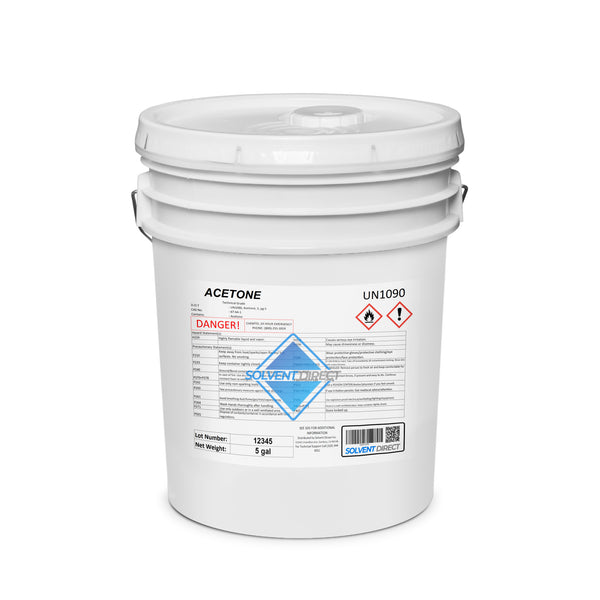
Acetone Liquid Chemical Solvent - Solvent Direct

Pharmco-Greenfield 329000000DM55 Acetone - 55-Gallon Poly Drum
Contains 100% pure virgin acetone, Removes polish easily and quickly
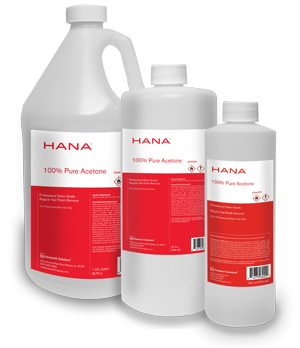
Hana 100% Pure Acetone 1 Gallon - Hazardous Item
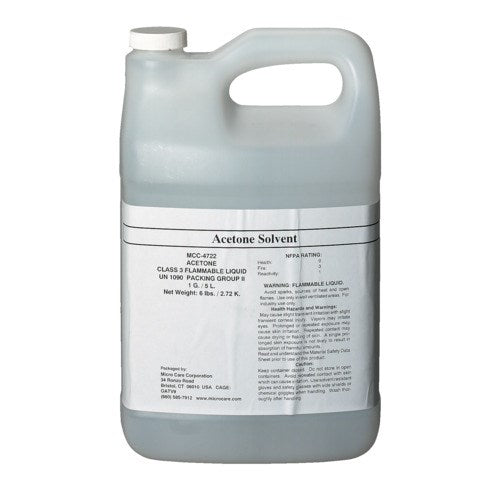
MicroCare Acetone, 1-Gallon / 3.9 Liter Plastic Bottle - MCC-4772 - Lab Pro Inc
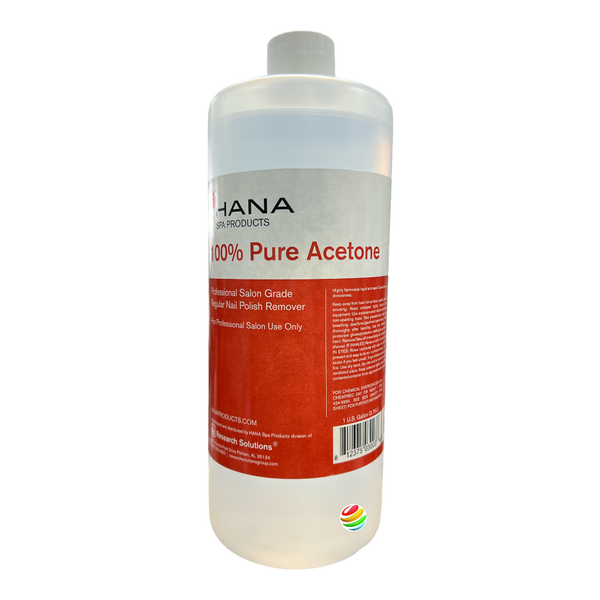
Acetone - 100% Pure Acetone 32 Fl Oz – Global Beauty Supply
Still the best solvent for cleaning up polyesters, epoxies and polyurethanes. Acetone is extremely flammable, so use with caution. Special Shipping
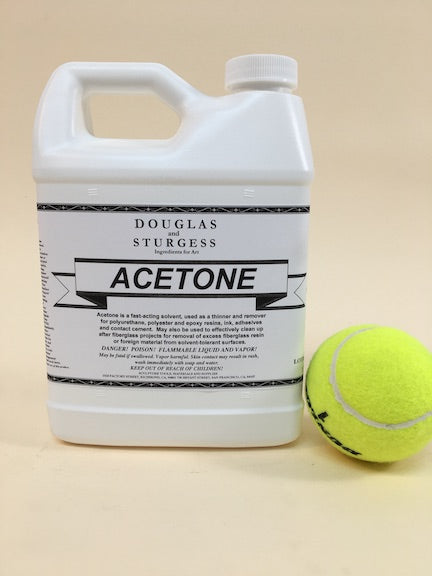
Acetone, 1 Quart

Acetone Solvent, >99%, 160 kg drum for Industrial Equipment Cleaning at Rs 100/kg in Idar
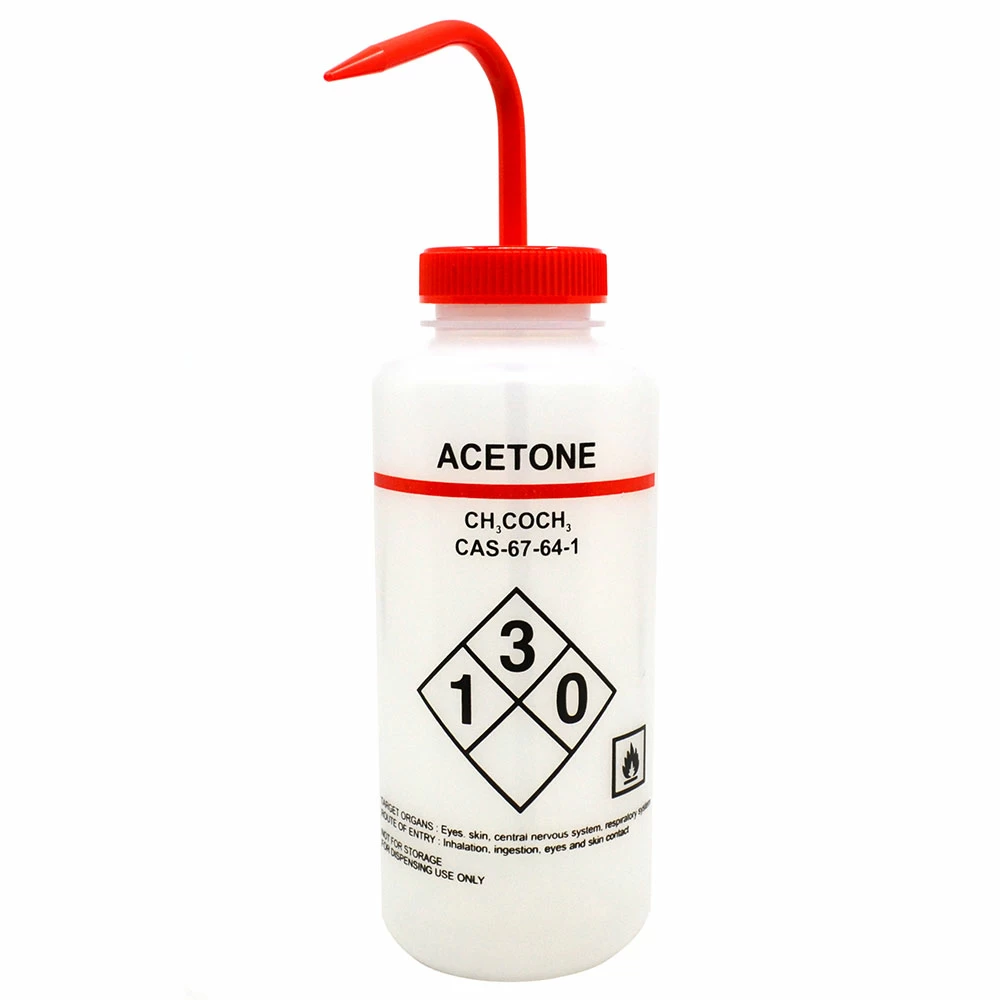
Eisco CHWB1014, 1000ml Labeled Wash Bottle Acetone, 1 Bottle/Unit - 75-193

Acetone, 90% (v/v) - R0189000-4A - Lab Pro Inc
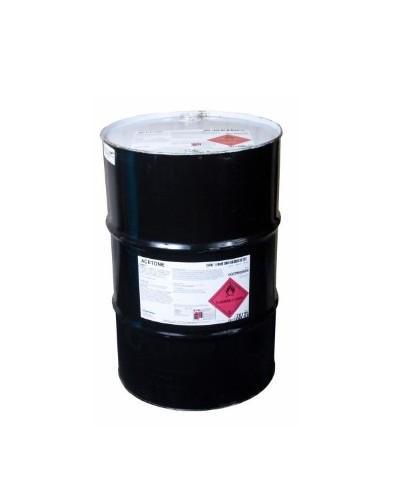
ACETONE 55 Gallon Drum – Fiberglass Source
from
per adult (price varies by group size)

